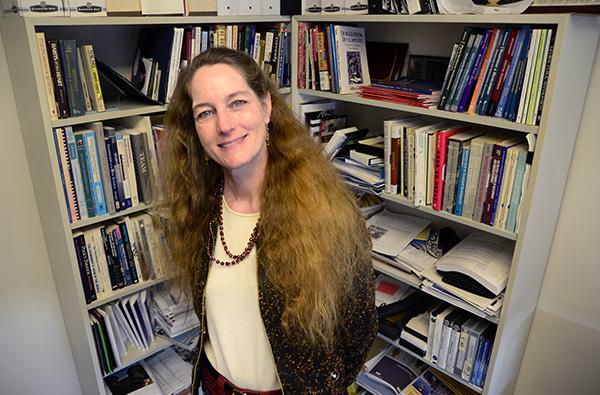GW will have an institute focused on Africa as soon as this fall.
Faculty say that while planning for the University’s newest institute is still in the early stages, the program will expand the Elliott School of International Affairs’ Africa-related curriculum and lay down the groundwork for new degree programs further down the line.
Reuben Brigety, the new dean of the Elliott School of International Affairs, was hired in August with the intention of bringing Africa to the forefront of the school.
“GW already has many faculty members with an interest in African affairs and I have deep experience in the region. I feel it should be a part of the world for the Elliott School and the University to explore together,” Brigety said in an email.
Brigety declined to comment on when he wants to officially start the institute, how the school would partner with existing African programs and whether or not he would hire more faculty who study Africa.
Before coming to GW, Brigety was the U.S. representative to the African Union and also worked as a deputy assistant secretary of state in the Bureau of African Affairs and in the Bureau of Population, Refugees and Migration.
Jennifer Brinkerhoff, a professor of international affairs and an associate dean of faculty affairs and special initiatives in the Elliott School, said officials hope to have the institute open as early as this fall. She said she is coordinating with faculty across schools to create the institute, which she said will attract more students to study Africa. Brinkerhoff also led the dean search that chose Brigety.
A group of faculty have been looking into starting an institute on Africa over the past few years, Brinkerhoff said.
“The time is absolutely right for this,” Brinkerhoff said. “The Africa studies institute will become the hub on campus for people interested in Africa.”
Brinkerhoff said there are plans to expand the existing African studies minor in international affairs and to launch a master’s program on African studies. Although there are currently Elliott School courses specifically focused on Africa, there is no graduate program in African studies.
The new program has been “drumming up excitement” by having high-profile African speakers on campus, like the executive secretary of the United Nations Economic Commission for Africa who visited campus this week. She said faculty have had conversations about how to launch new academic programs.
She added that the group is focused on finding resources for the institute and reorganizing faculty’s priorities to allow them to spend more time researching and teaching courses related to Africa.
Brinkerhoff said Brigety has brought up starting the institute while he travels on behalf of the school. She said next week when he visits London and South Africa, he will be telling people he speaks with about the institute.
She added that faculty in schools outside of the Elliott School will be involved with the institute, research faculty from the School of Medicine and Health Sciences and the Milken Institute School of Public Health. She said more than 50 faculty throughout the University focus on Africa in their research, service or teaching.
Senior Associate Vice Provost for International Strategy Doug Shaw told the Board of Trustees this month that he is focusing on creating partnerships in Africa this year, especially since Brigety had “emphasized his interest” in starting an institute.
“We really need to focus on getting our arms around our capabilities in Africa,” Shaw said.
Brigety also mentioned the importance of Africa in international affairs in his first address to the school.
David Rain, an associate professor of geography, said he has wanted the Elliott School to focus more on African affairs for “years and years” and said Brigety’s role is a good opportunity to increase focus in that area.
“It is a very high priority for him, and that is very exciting for me as someone who does research in Africa and has followed Africa for a long time,” Rain said.
Rain said that while he has not been a part of designing the institute, he thinks it will be easy to give students the chance to meet and work with experts on Africa in D.C.
“Lots of diplomats come through. There is a lot of activity with the World Bank and the IMF on multiple fronts having to do with Africa,” Rain said.
Steven Livingston, a professor of media and public affairs and international affairs, said Africa is an obvious place to extend GW’s programs. He said Brigety’s initiative is a “fantastic idea.”
“Africa is one of the most important, diverse and intellectually interesting places on the planet,” Livingston said in an email. “Yet old tropes about war, famine and disease still dominate Western impressions of the continent.”
Livingston, who has studied and traveled to Africa throughout his career, said students have untapped opportunities for Africa-related scholarship.
“We have a lot to learn, and an institute devoted to Africa would make an important contribution to scholars and students alike here at GW and beyond,” Livingston said.
Ellie Smith contributed reporting.







